I’ve been enjoying Parenthood thus far, but wasn’t sure how true the portrayal of the kid with Asperger’s Syndrome was, so I asked a friend of mine who has kids with Asperger’s to watch it so I could get her opinion. This is it.
A few people emailed me after the last time I had an open call for post requests asking me to “rip into” George R.R. Martin for taking such a long-ass time finishing the A Song of Ice and Fire books, which… no. I mean, just no. Even if we could get around the amazing hypocrisy of me calling someone out for taking a long time to finish a creative work, it’s something I just wouldn’t do regardless, because writers work at their own speed and it’s not a uniform process that’s the same for everybody so expecting Martin to crank out books on a yearly basis like Terry Pratchett does is silly and also Neil Gaiman said stuff I agree with. And so forth.
But I will say this: by getting HBO to sign on to a Game of Thrones series, Martin has – intentionally or not – set himself a deadline. And he’s set himself this deadline for one reason: he’s written a series which features young characters which is now being converted into an ongoing telefilmic series. In order for that series to work, it needs to film itself as quickly as possible. (It can be released on whatever schedule HBO likes, but that’s a different thing entirely.)
Think about it for a second. People complain quite frequently that the young actors in the Harry Potter movies have aged too quickly to portray the characters effectively. Now, granted, this is a pretty stupid complaint given that the first movie started production in 2000, when Daniel Radcliffe, Emma Watson and Rupert Grint were all eleven (just like in the book), and thanks to a fanatical devotion to cranking the movies out on a schedule that would probably be considered near-slavery if it weren’t for the enormous salaries involved for everybody working on it, they’re just about finished shooting the double-film adaptation of Deathly Hallows now, ten years later. Filming seven years’ worth of progression in ten years is honestly pretty amazing – and people still complain that Radcliffe, Watson and Grint have aged too much.
But the Harry Potter experience is nothing compared to what awaits production on A Game of Thrones and so forth, because the latter is a series of novels where young protagonists go through much more in an even shorter timespan: as of the end of the fourth book, they’ve covered in between two and a half and three years. Assuming that the rest of the series follows this pace, that’s seven novels covering about five years and change. Given that some major characters – Bran and Arya Stark, for example, as well as lesser characters like Thomen Baratheon – are out-and-out little kids (not even tweens), these series are going to have to film relatively close to one another, even faster than release times in order to keep from aging the younger characters too fast onscreen. (Especially considering that it’s been made clear that the show plans to produce one season per novel.) If they don’t, the show has the danger of pulling a Walt-from-Lost, where they have a young character clearly aging faster than the timeline of the show he’s on can handle.
Now, this isn’t impossible to film. Difficult, yes, but certainly not impossible – especially given HBO’s production budgets and the likely enormous return on investment. But all of this difficulty puts Martin’s back up against a wall, because up until now it was just his ass on the line if he got further delayed in finishing the books. Now it’s not just him: it’s everybody working on these shows. Previously the only other people affected by Martin’s slow writing speed were maybe a few people at a publishing company and some fans with an enormous sense of entitlement. Now, though, it’s a horde of people who are completely dependent on him finishing the books so they can produce the TV shows.
I don’t know if Martin can handle that pressure or not. I hope he can. I just know that I wouldn’t want it.
15
Mar
(and yes, I really did learn the tuba)
15
Mar
Would you fan eggs with a pizza box like a spaz for $1000?
Posted by MGK Published in The Internets, TVMy weekly TV column is up at Torontoist.
15
Mar



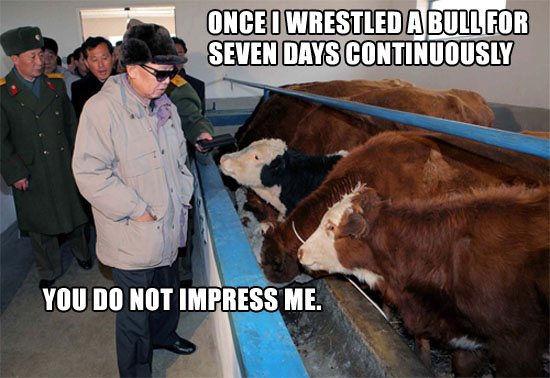
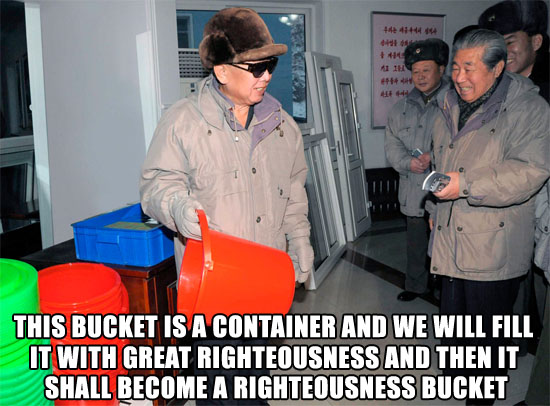

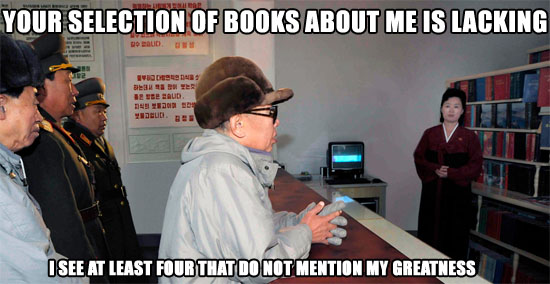
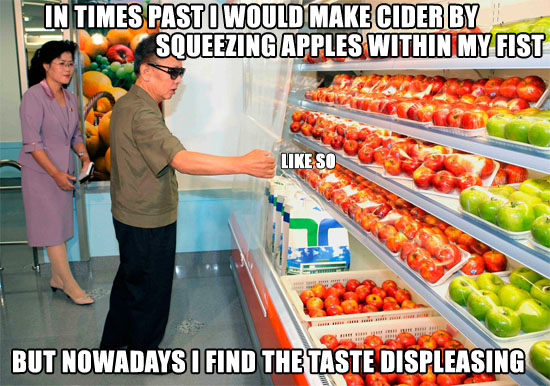
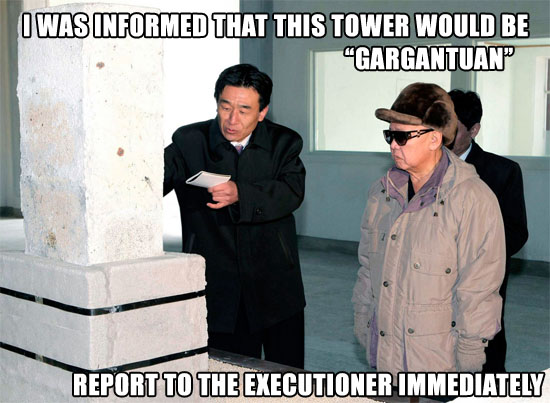
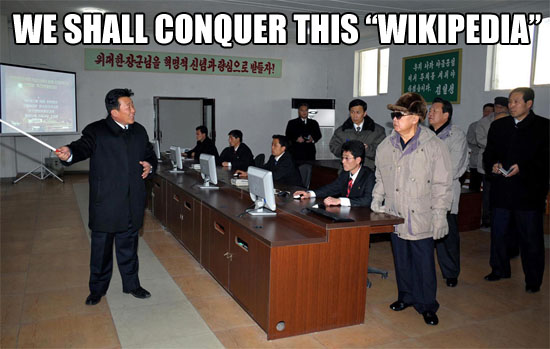
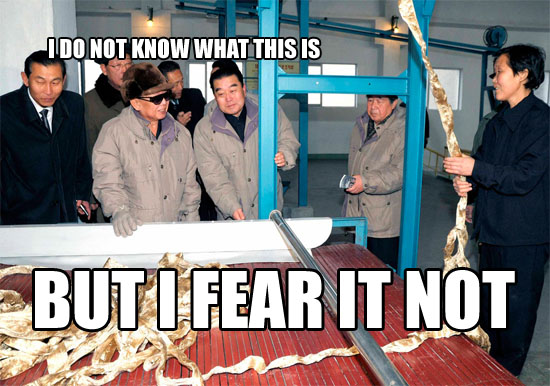
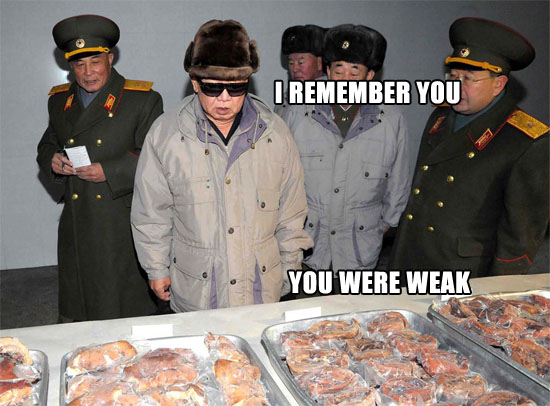

12
Mar
Hello, everyone! Sorry to detract from the actual entertaining posts, but I wanted to introduce myself so that next week, everyone knows that it was the new guy and not MGK who said that whoever green-lit “Spider-Man: Reign” must have been smoking crack. (Note: This may not actually be the topic of next week’s post. I don’t believe in stating the obvious.)
My name is John Seavey, and I’m a writer who’s probably best known on the Internet for my series of “Storytelling Engines” columns on ‘Comics Should Be Good’ and my accidentally inflammatory “How To Save Marvel Comics” columns on my own blog, ‘Fraggmented’. Offline, I’m probably best known for my contributions to the ‘Feng Shui’ line of RPGs from Atlas Games…which still isn’t saying much, but hey, it beats being on ‘America’s Most Wanted’.
Somewhere in all that writing, I caught the attention of Mightygodking, who politely offered me the chance to be one of his regular guest bloggers. Speaking as someone who doesn’t get even a tenth of the audience this place pulls in, I jumped at the chance. I’m no dummy, after all. (This may, in fact, be your only point of concrete evidence on this point, and it’s really my word against yours.)
So what kind of posts can you expect from me in my Friday slot? Well, I can usually be relied upon to talk about comics, although you should be aware that I am something of a curmudgeon about the current state of the market (I have at one point suggested that DC should just publish a new crossover every year called, “DC Kills Everyone Who’s Alive and Resurrects Everyone Who’s Dead!”) I also do a good line in chatting about movies, and I can yammer about Doctor Who with the best of them. (I can actually follow a debate about “UNIT Dating”. And “Lives Before Hartnell”.) And sometimes, I just have crazy weird shit that I have to get out of my head, which is really the secret purpose of every blog everywhere. (This is why there are fewer homeless people now. They do their crazy ranting on blogs instead of street corners.)
It should also be noted that I have political opinions. If MGK’s offend you, you’re not going to be any happier with mine.
So that’s me, at least the parts of me that will relate to this blog. Assuming MGK doesn’t shitcan me for such a boring opening post, tune in next week to hear me saying something interesting!
(Warning: Use of the term “interesting” does not guarantee actual interesting content. If content is “Spider-Man: Reign” related, author reserves the right to do the joke about the “Spider-Man” cartoon theme. Author has been known to define “Friday posts” as occurring on Saturday, or even the following Tuesday. If you have serious liver problems, please contact your doctor before reading. If you have extremely serious liver problems, please contact your doctor right now. In case of fire, read this post while using the stairs, not the elevator.)
11
Mar
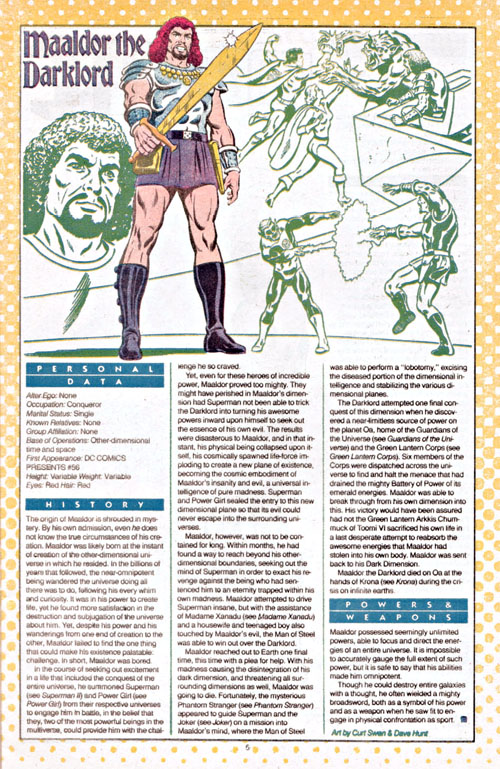
Some people like to point to that bit in Crisis On Infinite Earths where the Penguin is briefly depicted fighting Firestorm to a standstill as the “waitasec” moment of that series, but it’s not mine. After all, the Penguin is a pretty smart dude and he has umbrellas that shoot people. Plus, Firestorm is traditionally a dumbass.
No, the “waitasec” moment of Crisis for me comes in #10, when Earth’s villains attack Oa in the past to try and save it. (Long story.) In order to stop Krona from viewing the start of the universe and creating the multiverse by accident, the villains try to destroy his lab, and although most of them get conked out early on, three of them – the first Icicle, the first Mirror Master and Maaldor the Darklord – make it to the lab and are about to destroy it, but Krona kills them while they argue about who gets to smash his stuff. No, really.
Now, granted, the fact that he wears ancient-Roman-ish armour and wields a broadsword (and has a Jheri curl) might make him look like a bit of a low man on the totem pole. Heck, on the cover of his issue of Who’s Who he’s squaring off against Madame .44, who has the power of… two guns. But here’s the thing: Maaldor the Darklord wields the entire power of an entire sub-universe. His Who’s Who entry says he is basically omnipotent and that he can “destroy entire galaxies with a thought.” He fought the entire Green Lantern Corps to a standstill more than once.
Basically, he shouldn’t have gotten punked like that.
And here’s the other thing: Maaldor is kind of awesome in a low-rent B-list Vartox sort of way. He’s a full-on godly being who speaks of himself exclusively in the third person (like the Rock!) and hits people with a sword because he can, not because he needs to. He just like slashing people with a sword. It’s how he chills out.
That is a universe-powered being who knows what he likes. He’s due for a comeback.
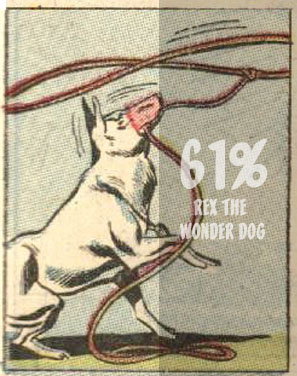
11
Mar
SYTYCD Australia Bloggin’
Posted by MGK Published in Obligatory So You Think You Can Dance Category, TVYour guest host is Kelley Abbey. She is pretty.
Top seven boys: Broadway. I was kind of meh on the whole idea of a top seven boys’ performance because there didn’t seem to be any reasonable way to choreo a routine that would showcase all of them equally, so I figured they’d end up just doing a sort of bland bit that would showcase them all equally not-at-all, and I was unfortunately correct about this. I also nailed both Broadway selections for just going with the most predictable options (in this case, West Side Story for the boys). I love the Australian show for tinkering with format, but this is one of their failures.
Issi and Don: “funky street Latin.” This was probably the best Issi and Don have danced together so far: Issi finally had performance quality when not dancing in her genre and Don was dead on the beat throughout and not rushing. Both had a few weak bits – Issi mostly at the start, Don a bit after her – and the confidence was occasionally lacking (Jason’s comments about “finding Broadway versions of yourselves” was actually pretty brilliant) but on the whole this was danced reasonably well for something that’s about as far from being a formal genre as possible.
Jessica P. Ballroom and Heath: contemporary. Killed it, again – which is not surprising because these two have danced contemporary, jazz, one tango and now back to contemporary. I’d really like them to do anything else at this point, but I can’t say this wasn’t good.
Ivy and Robbie: paso doble. Okay, Robbie needs to have facial hair pretty much forever, because it ages him about five years. Actually, since he normally looks about fifteen, maybe ten years. Anyway, Jason Gilkison is brilliant, but even with Gilkison I was skeptical that a prop cape would fly. But it did, because he’s brilliant. This is Ivy’s second paso (I can’t remember the last time one dancer danced paso twice in a single season) and the improvement was massive; Robbie finally danced well enough to convince me that he’s not just a great soloist. That double développé was fucking insane. Fantastic work.
Carly and Kieran: contemporary. Other than Calry maybe overemoting a bit in a couple of sequences, there’s nothing to say other than: yes, another excellent contemporary performance. See, this is the problem with recapping this show: so much of it is just good and there’s nothing for me to say except banana monkey hamburgers and pretend that it is meaningful.
Jessie Contemporary and Matt: jazz. Clever concept with a ton of character and danced excellently by both of them. I’d really like to point out that Jessie’s leaping split into the catch by Matt was a total moment of trust on her part, which says a lot about this partnership. (I know that this is a very SYTYCD Judge thing to say, but I’m not saying it about a basic lift but instead about a pretty difficult stunt. I don’t think, as Bonnie did, that Jessie outshined Matt; she had the showier role but Matt danced just as well as she did.
Renee and Phillipe: Viennese waltz. This started out with such pleasant chemistry, and indeed the chemistry was ridiculously good throughout: the looks on Renee’s and especially Phillipe’s faces were so amazingly genuine. In terms of character quality this was probably the best waltz SYTYCD has seen since Mark and Courtney’s in season four of the US show. Unfortunately, the dancing was clunky and clumsy and just plain bad, which was a massive disappointment; if it had been on par with the chemistry this would have been an incredible tour de force.
Jess H. Hip-Hop and Nick: hip-hop. My love for Tiana Canterbury knows no bounds, and especially for choreographing 90s-style hip-hop, which any hip-hop dancer who’s tried it can tell you is insanely difficult, and there were a few stretches in this routine where Nick especially was just falling behind and even Jess was clearly struggling to keep up. This isn’t to say that the routine wasn’t fun and danced relatively well, but in a field this strong it’s unfortunately second-class.
Top seven girls: Broadway. I would like to put “Cell Block Tango” on my list of Music I Never Want To Hear On This Show Ever Fucking Again. That is all.
Probable bottom three: Issi and Don, Jess and Nick, Renee and Phillipe.
Should go home: Issi and Don.
Will go home: Jess and Nick.
10
Mar
(inspired by this)
—
The old man lies back in bed. The nurses call him by a name he barely remembers any more, except when his friends use it. The name is meaningless anyway: calling it a fiction would be too kind. It’s a shoddy lie, and nobody believes it now, and as he nears the end of his life he dislikes it more and more. He’s not exactly sure why he dislikes it so, not any more. Things are foggy when you’re in your nineties: everything you know is like a sketch of a photograph you once owned.
Sometimes he sees a woman on the television in his room – it only gets four channels, but what better way does he have to spend his time? – a woman who’s been very successful in her life. When he sees her, he feels, for a brief moment, vindicated. It was worth it, he thinks to himself. This is how he gets through the pain of his body gradually turning off all its lightswitches, of his limbs becoming dusty hallways: vindication.
—
Winston Sligh was thirty-one, a grown man who’s always had a bit of a taste for adventure. A lot of that adventure came by way of the Marine Corps, where Winston worked long hours doing whatever was humanly necessary to avoid combat. The recruiter told him about his duty to his country, but Winston was a practical-minded sort even then and figured that his first twenty-six years had been spent mostly trying to just get by, traveling from town to town looking for work, and his country hadn’t much cared for him then so Winston figured they were square. The recruiter told him about his duty to his family, but Winston’s mother died when he was fifteen and his pop ran out on them when he was three when his little sister died getting herself born, so Winston figured they were square too. Then the recruiter told him about the pay, and Winston signed up on the spot.
Winston went to Guadalcanal five months after the battle of Guadalcanal ended, then to Peleliu six months after hostilities ceased, and finally to the Iwo a mere two weeks after the last shot was fired. He had a knack for finding ways to put himself on the rear echelon of any engagement. Really, often he wondered why he hadn’t joined the Navy, where he figured his various tricks, scams and a skill hencetoforth unknown for forging documents probably would have gone even further. He got his discharge six months early, after catching a lieutenant-colonel having a do with a strapping young corporal in what they believed was secrecy, and set out again to seek his fortune.
A year and some days later, he found himself in the middle of Iowa, broke off his ass again (and recovering from one hell of a hangover), and wondering at the flatness of it all. He asked around, and it turned out the Widow Symons needed a hand to bring in the sorghum harvest, so he went over to the farm that was just outside of Alta and signed up. She liked him on first sight, and him being a former Marine sat well with her as her husband had gotten blown up on Okinawa. Not long after that, he found out the Widow Symons needed a hand for some other things as well, of a more private nature. People in Alta town proper began to speak of him as having done well for himself, although they were never too specific about that. And then there was Myrna’s daughter, Jackie, to whom Winston took quite a shine. She was six, and felt like the little sister he’d never gotten to have, although she didn’t quite look at him as a big brother in her own right but more a replacement daddy.
He felt settled down, and although a shiftless sort such as he would never admit it, he liked this.
Then the ague came.
—
Jackie had the shivers and the runs and was burning up. Dr. McAdams couldn’t peg it, and he was smart enough to check for malaria (not exactly common in Iowa, but she had all the signs) and even that turned up to not be. Dr. McAdams called up an old friend who now taught at the Iowa Hospital School, hoping that maybe academia had some answers. His friend didn’t know, and promised to call specialists who owed him favours. By that time, the little girl wasn’t even coughing any more. She just lay there, too tired to fight it.
And the thing of it is this: Winston knew enough to be sure that it was a conjure. He just didn’t know enough to fix what had been done.
—
Growing up in Marianna, Arkansas wasn’t easy with no daddy, but young Winston got by even though respectable folk thought he was trash because his mother did what was necessary to get by. They called her a whore, but she never was, Winston knew. She took in nigger business, though, when she cooked food and took in boarders, and there was always those who figured that a woman willing to take nigger money was willing to do just about anything else.
Of course, his mother’s friendliness with the niggers meant that Winston was particularly worldly for a boy his age. His best friend, Abraham, was half-black himself on his mother’s side, and Abraham introduced him to Nicodemus, and Nicodemus was the person every young boy really needs: the one who tells you how the world really works.
Nicodemus was probably about fifty, although you couldn’t quite place his age if you tried. (“Makes it easier to get away in a hurry,” said Nicodemus, “if they don’t know how old you are.”) He taught Winston and Abraham and all their friends how to smoke, and how to fish, and how to drink hard liquor (although he never got around to teaching them how to make it properly, and years later one of their friends, a not particularly bright light called Obie, would get himself blown up by a faulty still as a result of this negligence). He told them about how he’d nearly gotten hung twenty years back for a dalliance with a proper lady, and warned them against such fancies. He beat their asses when they didn’t go to school. (“I never got to go to no school,” he’d say, “and damn if your parents ain’t gonna get on my case for letting you grow up to be me, and it ain’t worth the trouble.”)
And he knew hoodoo. He had a book of conjures that he swore up and down was by John Hohman himself. He knew how to make goofer dust which would make dice roll the way he needed them to roll, how to use John the Conqueroo to help a man in the bedroom, how to make a charm from a black cat bone to stop bad mojo headed your way. He didn’t advertise this; he didn’t need to. Word got around when it needed to get around, and Nicodemus had seen what had happen to the rootworkers and mojo men who tried to make a name for themselves.
Abe and Winston found out about his hoodoo the old-fashioned way: by going through his stuff when he wasn’t around looking for pictures of naked ladies. (They were thirteen at the time, tugging it every chance they got, and were willing to risk anything for pictures of naked ladies.) Nicodemus was furious when he caught them going through his belongings, and banned them for a whole week, but they kept coming back and asking after love charms – Winston in particular having figured out that no naked lady was coming anytime soon for a thirteen-year-old piece of white trash and that more direct steps would be needed – and although they never got them, he eventually was willing to teach them a little.
Not a lot. Just a little. Nicodemus kept things close to the vest. But he taught them how to recognize the signs of a conjure that had been done on a person to make them sick. And he taught them one other thing.
—
The night the little girl went to sleep and Dr. McAdams said to Winston – under his breath where the Widow Symons wouldn’t hear him – that she wasn’t going to wake up, Winston went out to the old orchard down the road from the Symons farm with an axe. He passed the Willam farm enroute, the Willam boys chasing one another around for fun, their mother yelling at them to come in already, dinner’s getting cold Roger and George, who raised you hellions? He barely paid attention to them, although they noticed him, a man with an axe walking with purpose not something a seven-year-old would fail to gawk at. When they bothered him about where he was going, he said “Firewood,” nodding at them to go to their mother. They went readily, because a man with an axe telling you to do something has more impact than your mother telling you to do it, even if she’s got an axe. (Your mother probably wouldn’t use the axe on you.)
He found what he was looking for right enough: a stump, with two trees close to it on either side. The trees, once he chopped them down, made excellent seats (albeit a bit sticky from the sap, but he took care of that with a little lighter fluid and a match). He took out a deck of cards and spread them across the stump. He pulled an old candle stub out of his pocket, set it down on the middle of the stump, and lit it. He sat down on one of the seats and said, quietly so as not to offend (“don’t shout him out,” said Nicodemus): “Old Scratch, I got a game for you.”
And then he waited.
He didn’t know how long he waited, not to be sure. Maybe fifteen minutes, maybe a half-hour, but it had been the tail end of dusk when he looked up and there, coming towards the stump, was a grey-haired man in a sharp three-piece gabardine suit. He had a cigarette case in his hand and lifted one to his lips, then stepped forward, bent down and lit it off the candle. After a couple of puffs, he finally looked at Winston, paying attention to him for the first time. Winston looked him dead in the eyes and wished he hadn’t.
“So.” said the Devil.
“Yup.”
“Well, you called me, Winston. I’m here. What can I do for you?”
Winston gestured at the cards, striving not to let his discomfort at being recognized show.
The Devil sighed. “Yes, I figured, but what are we playing for?”
“Widow Symons’ little girl, Jackie, she’s got a conjure on her. I want it gone.”
“So make a counter-charm. Really, this is overkill.”
“I don’t know how. And there ain’t time to go find someone who can do it. My stakes ain’t good enough for you or something?”
A puff on the cigarette. “Not at all. I just wanted you to be aware of any options you might have missed. So, what are you offering?”
“My name against the cure.”
“Your name, eh? Not your soul?”
“Ain’t my name enough?” He couldn’t entirely disguise his irritation at the question, even if this was the Devil.
A shrug. “It is. I’m sorry, I’ve just been playing a lot of people these days who automatically want to go big right from the start. I’m not used to somebody who knows the price of things.” He gestured towards the deck. “Five-card draw?”
“Seven-card stud, showing four. Say, how come you didn’t just appear out of nowhere? I thought that’s what you’d do.”
Stream of smoke out the nostrils. “It’s showy. Seemed a waste of time to do it for you. I can go out and come in again, if you’d like.”
“No, thank you. I don’t want to put you out.”
“Kind of you.” The devil gestured towards the deck again. “So. Seven-card stud, a hundred chips a side.” The chips were suddenly there and had always been there. “Your name, versus the cure for any hoodoo that’s been placed on the girl.”
“Or conjure, or black magic, or any of that.”
“Certainly. Any spell whatsoever. Are you sure this is what you want to play for, Winston?” There was an odd tone in the Devil’s voice. Winston thought about it hard for a second. Nicodemus had told him over and over that the Devil wasn’t allowed to lie, but misleading, implying, or allowing a bargainer to make a mistake, that was all fine.
He thought over his wording again, very carefully, and didn’t see a flaw. He was covered. “Yeah. I deal first?”
“Certainly.”
—
Twenty-five minutes later, Winston was down to eleven chips versus the Devil’s one hundred eighty-nine.
The Devil laid down two cards apiece, then a third face up. Queen of spades for Winston, two of hearts for the Devil. Winston checked the face-down cards: queen and a deuce, both in clubs.
“I’m in for one more.” Winston tossed a chip into the pot.
The Devil’s eyebrows quirked up as he looked at the cards. “All right, I’ll see it.” Another clink as the chip landed beside the other three, and then a new card for each of them: four of hearts for the Devil, jack of diamonds for Winston.
Neither of them checked their face-down cards a second time. The Devil thought for a second, and then said “Check.”
“Check.”
Five of hearts for the Devil, ten of hearts for Winston. “Check,” said the Devil. “By the way, Nicodemus sends his regards.”
“Really? Did he finally lose a game to you? Check.” The mention of his friend made him nervous, but he didn’t want to show it.
“No, he never did. But you must have known that he wasn’t entirely on the up and up. He did crimes, Winston.” Six of spades for the Devil, six of hearts for Winston. “He came about my place in the usual way, you understand. Check.”
“Well, that’s a shame. He was good to me and Abe. Please pass my good word back to him. I’ll raise you two.” The Devil had mostly junk showing; it’d take a pocket pair of kings or aces to beat Winston at this point, unless the Devil had a flush. “You know, he always described you as being a black fella. Does that change from time to time?”
“From man to man. See your two and raise you ten. Are you all in, or do you want to fold?”
Winston needed to know how this hand turned out. “In.” He shoved his last few chips into the pot.
The Devil nodded slightly. “Okay. I’ve got a flush already. Sorry.” He turned his cards up: king and ace of hearts. Winston felt queasy as he revealed his queen. The last cards dealt were the three of clubs and the three of diamonds – meaningless. The Devil stood up and offered his hand.
Winston stood, trying not to throw up, and raised his hand to shake with the Devil. As their hands touched, he felt something pulling at him, and then realized that it wasn’t something pulling at him so much as it was something pulling inside of him, down the length of his arm and out. He looked up desperately into the Devil’s eyes, expecting to see amusement or satisfaction, but the Devil merely looked a bit disappointed. That pull continued, and continued, and seemed to go on forever inside of a few seconds. Then it stopped.
The Devil adjusted his hat. “You gave me a good game, but it’s over. Good luck to you in your future endeavours.” He turned to leave.
The nameless man who had once been Winston Sligh reached forward, grabbing the Devil by his sleeve, hoping that this would work. “Wait.”
—
“…and that’s how I beat the Devil at poker and won myself the way outta that jail.” Nicodemus’ grin stank of homemade cornshine and beets.
Abe was passed out asleep on Winston’s living room couch, but Winston was still listening. “Do you think I could beat the Devil at poker, Nicodemus?” Like all fourteen-year-olds, he assumed the answer was “yes, eventually.” Hence his disappointment when Nicodemus shook his head.
“You’re already a good hand at poker, but playing the Devil ain’t like playing men. You got to be a God-damn genius with cards, and you’re just good, that’s all. And you ain’t gonna get better enough to beat the Devil. You play him and you’re gonna lose, and when you lose against the Devil you lose so big nothing else matters.” Nicodemus scratched his nose. “Why you think I ain’t teaching you my tricks? You’re just smart enough to get all fucked up with ’em.”
Fourteen-year-old-Winston was unsatisfied. “But what if I ever really need to do it?”
“You ain’t never gonna need to do it bad enough.” Nicodemus paused. “But if you did, there’s one way might work. Never tried it myself – never needed to, being so talented and all. But it might work.” The hoodoo man looked at him, eyes not nearly so glassy as his breath would have made you figure. “You don’t go doin’ this for some fuckin’ candy, or pussy, or shit like that. This only counts when your life is on the line. You promise me?”
Winston nodded as hard as he could.
“Swear on your mama.”
“Swear on my mother.”
Nicodemus nodded. “All right. Not being gifted like myself, this is what you do…”
—
“Another game? I’ve already got your name.”
“You don’t have my soul yet.” The nameless man shrugged. Holding together the knowledge he’d had previously was a little more difficult than he’d been prepared to handle, and trying to remember everything he yet needed to remember was tough. But there wasn’t nothing for that now. “Surely you’re not gonna finish up after just one round?”
“You really want this.” The Devil looked at him calmly. “Have you considered stakes? I mean, really considered them? I think you need to think this over.”
“No need. My soul against my name and the protection we discussed earlier.”
The Devil shook his head. “Too much.”
“Too much?” The nameless man tried not to look afraid. This wasn’t part of the deal. “It’s my soul! A soul’s worth more’n a name, everybody knows that! You can get a name anywhere.”
“I don’t think you quite understand what you gave up yet.” The cigarette case snapped shut, and was tossed upon the stump. “Your soul’s worth more than the name, but less than the two of them together. I’ll not risk both. I have my reputation to consider.” The Devil spread his hands out, a gesture of reconciliation. “However, I’ll give you some consideration. A hundred and fifty chips versus my hundred, for either of them. Fair?”
The nameless man who might have once been named something that sounded like “Bligh” considered it. He wasn’t going to get much better. “Two hundred versus your hundred.”
“One seventy-five, and I don’t normally bargain, but I appreciate your sentiment. Don’t push me further, friend.” The Devil sat back down before the stump. “And this time, we play Omaha style.”
“Okay.” The nameless man took his seat. “One seventy-five versus your hundred. My soul for protection for the girl from spells of all kinds, same stipulations as previous.” The nameless man didn’t say that now he was having trouble remembering all of those stipulations. He was trying to keep other things in mind.
The Devil reached for the case again, pulled out a cigarette, and lit it – not off the candle, but from a lighter that had been in his hand previously and which he had used many times before, the nameless man was suddenly sure. “Are you sure you don’t want to reconsider the stipulations?”
“I’m sure.” No tricks. He remembered that overpoweringly.
“All right.” The Devil glanced down at the table, where two dissimilar piles of chips had been present the entire time they had been here. He reached for the deck and dealt each of them three cards, face-down, and his eyebrow quirked up again.
The nameless man had trouble remembering things now, but he remembered each of the six hands where the Devil’s eyebrow had done that, each time leading to a big win for Old Scratch. He remembered it because he’d told himself to remember it, over and over again. “Fold.” He said it even before the ante, not even looking at his cards, simply tossing one of his chips over to the Devil’s pile.
The Devil’s expression didn’t change, except for a faint pinch in the cheeks. He wasn’t happy. The nameless man knew that because his cheeks pinched like that when he’d had a couple of junk hands early on in the first game. He’d spent that entire first round of poker losing, and losing, and losing, not because he wanted to lose but because he wasn’t quite good enough at poker to figure out all the Devil’s tells fast enough.
Someone, he couldn’t remember who now, had told him once that this might work.
—
“I’ll simply concede at this point. The ending is academic.” The Devil gestured at his pile of chips: he was down to less than twenty.
“Thank you for the game.” No sense in not being polite, figured the nameless man. “Shall we have another? I ain’t won my name back from you yet.”
The Devil shook his head. “No. You’ve won as much as you can, and that not enough.”
“Aw, come on. No need to be sore.”
“I’m not upset in the slightest. I just refuse to participate in theft. I only take from those who know what they’re doing. Robbing from children, there’s no joy in it for me. How many of my tells do you remember at this point? Less than half?”
The nameless man didn’t want to admit that this was probably true. “Look -”
“No. No. You’ve already wasted your winnings.” The Devil stood, clearly not happy.
“What do you mean? I won. Little -” He suddenly realized he didn’t know her name any more. “She’s gonna get better.”
“She never had a conjure on her.” The Devil actually looked apologetic. It was a strange thing to see on his face. “I kept telling you to think about what you were playing for, man. You kept insisting for protection from black magic, but there never was any black magic – she just got a rare bug the doctors don’t recognize that you thought was a conjure. If you’d simply asked for her to get better, I could do something. But you didn’t.”
The nameless man didn’t say anything. He couldn’t believe he’d been so stupid. Worse, he didn’t know how he’d managed it in the first place, not now. It was all like looking at the world through stained glass.
“I’m sorry. If I could just give you your request again… but rules are rules, especially for me. And I don’t do takebacks.” The Devil laid a comforting hand on the nameless man’s shoulder, then walked out of the orchard. In seconds, he was gone.
—
The nameless man walked on down the road. He wasn’t quite sure where he was going. “Forward” was about all he could manage.
Up ahead, he saw a couple of serious looking men looking jubilant in a quiet way, the sort of way you expect men to whoop and holler when they can’t whoop and holler because it’s late at night and people will complain. They held in their cheering under wide grins and more than a bit of tipple. One of them had a medical bag. As he approached, one of them – a farmhand by the look of him – waved him over. “Hey, stranger. Care to join us? We’re celebrating. It’s been a good night for us.” He waved a flask at him, clearly having already had a few from it.
“Sure,” said the nameless man. A drink would be good. He felt as if he’d had a bad night, although he couldn’t quite explain why.
“It’s a damn miracle,” said the one with the medical bag by his feet. “That fever shouldn’t have broken. She couldn’t possibly have fought it off, but somehow… I don’t know how it happened.” He took the flask from his friend and took a hard pull. “I just thank God that it did. I don’t know what Myrna would have done.”
“Don’t worry yourself over what hasn’t been, Doc.” The farmhand took the flask back from the doctor and handed it to the nameless man. “Here. Hey, you looking for work? We can always use a new hand this time of year.”
The nameless man swallowed down some whiskey and handed it back. “I could use a couple weeks’ work before I move on, I guess…” His attention was drawn by a handsome woman walking towards them purposefully. The doctor grinned, amused in the way that men can be when they’re not the ones in trouble with their better halves, or at least aren’t the ones who’re going to pay for it.
“Myrna -”
“Don’t Myrna me, Winston Sligh. You’ll wake the neighbours if you carry on like this. Who’s this, then? I hope you’re not hiring whoever just walked past on account of being drunk.” She looked at the nameless man critically, as if she recognized something about him – but it was only there for a second and then it was gone.
Somehow, the nameless man felt as if she was important somehow, but couldn’t figure out why. He cast about in his mind for a name, and said the first two that came to mind. “I’m on the road, just looking for work. It’s awful late, ma’am. If you let me sleep in the barn, and maybe offer up some breakfast, I’d be happy to work for you tomorrow.”
She thought about it for a long time, and looked at Winston. “You think he’s all right? It’s late to be walking.”
“Just means he’s in need, Myrna. I showed up late once too, you’ll recall.”
“True enough.” She turned back to the nameless man. “There’s hay bales in the barn. Winston can bring you out some blankets.” She walked away, then, saying only “I’m going to go check on Jackie again” as she left. The nameless man couldn’t help but think that that name was important too, but decided not to think about it muchly.
As he followed Winston out to the barn, the nameless man thought he saw a man in a nice blue suit exiting the house, but he couldn’t quite be sure that the man was out of place, so he said nothing. He felt confused. It had been a long day, he was sure of that.
—
The old man, who’s been unable to ever get proper identification – he tried a few times although he doesn’t remember it any more, and every time he got lost in the shuffle or the system – sits in a bed that’s been charitably donated to him. A couple of friends he made decades ago, long after he moved on from Iowa – he barely remembers Iowa – are the only ones who visit. They feel awkward around him; they don’t really know who he is. Nobody does.
When he sees a woman on the television and feels vindicated, he doesn’t know that Jackie Symon married and became Jackie Kulp, that she had four children and saw three grandchildren before she died fairly young at the age of sixty-three a few years back (breast cancer). He doesn’t know that she was never any of the famous women he sees; he can’t know that. He doesn’t know that she lived a happy life, as lives go, and died surrounded by people she loved.
All he knows, somehow, is that he did the best he could to help a little girl that he knows he loved, and the little girl grew up well. It doesn’t matter if he thinks the little girl is now a TV host or a famous judge or a respected scientist; he thinks all of those things at one point or another. What matters is that he knows, when it counted, he stood up.
At the end, it justifies things.
10
Mar
You know, it’s nice to know that Marc Thiessen is exactly the whiny, disingenuous little toad in desperate need of a cockpunching that I imagined him to be.
9
Mar
I’m not going to turn this blog into trailer central or anything, but apparently you could see this in 3D if you went to see Alice In Wonderland in 3D but instead I saw it in a theatre with really crappy sound so I didn’t get to see this and holeeeeeeeeeeeeeee shit.
This is more important to me than a dozen Iron Man sequels.
8
Mar
Did you know HBO sends screeners of whole series to critics? It’s pretty awesome.
Posted by MGK Published in The Internets, TVMy weekly TV column is up at Torontoist.
8
Mar
Jaime found this and passed it along:
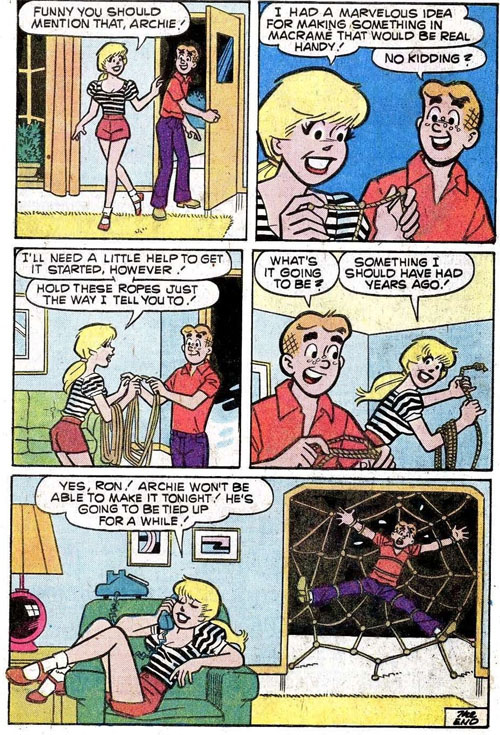
It’s the blissful expression on Betty’s face, combined with the sheer terror on Archie’s, that really sells the last panel. Her parents are away on a weekend vacation. Jughead is in Shelbyville at a chess tournament. Veronica is distracted, thanks to tipping off Reggie that Archie would be “otherwise occupied.” Moose and Dilton are useless. Archie is all hers, and as she lies glibly to Ronnie, she knows at last the sweet taste of triumph.
7
Mar
Rather than liveblog the Oscars and just make people click “refresh,” I’m doing it on the Twitter.
Feel sorta dirty.
Search
"[O]ne of the funniest bloggers on the planet... I only wish he updated more."
-- Popcrunch.com
"By MightyGodKing, we mean sexiest blog in western civilization."
-- Jenn
Contact
MGKontributors
The Big Board
MGKlassics

Blogroll
- ‘Aqoul
- 4th Letter
- Andrew Wheeler
- Balloon Juice
- Basic Instructions
- Blog@Newsarama
- Cat and Girl
- Chris Butcher
- Colby File
- Comics Should Be Good!
- Creekside
- Dave’s Long Box
- Dead Things On Sticks
- Digby
- Enjoy Every Sandwich
- Ezra Klein
- Fafblog
- Galloping Beaver
- Garth Turner
- House To Astonish
- Howling Curmudgeons
- James Berardinelli
- John Seavey
- Journalista
- Kash Mansori
- Ken Levine
- Kevin Church
- Kevin Drum
- Kung Fu Monkey
- Lawyers, Guns and Money
- Leonard Pierce
- Letterboxd – Christopher Bird - Letterboxd – Christopher Bird
- Little Dee
- Mark Kleiman
- Marmaduke Explained
- My Blahg
- Nobody Scores!
- Norman Wilner
- Nunc Scio
- Obsidian Wings
- Occasional Superheroine
- Pajiba!
- Paul Wells
- Penny Arcade
- Perry Bible Fellowship
- Plastikgyrl
- POGGE
- Progressive Ruin
- sayitwithpie
- scans_daily
- Scary-Go-Round
- Scott Tribe
- Tangible.ca
- The Big Picture
- The Bloggess
- The Comics Reporter
- The Cunning Realist
- The ISB
- The Non-Adventures of Wonderella
- The Savage Critics
- The Superest
- The X-Axis
- Torontoist.com
- Very Good Taste
- We The Robots
- XKCD
- Yirmumah!
Donate
Archives
- August 2023
- May 2022
- January 2022
- May 2021
- January 2021
- December 2020
- October 2020
- June 2020
- March 2020
- January 2020
- December 2019
- October 2019
- February 2019
- January 2019
- December 2018
- April 2018
- March 2018
- February 2018
- January 2018
- December 2017
- November 2017
- October 2017
- February 2017
- January 2017
- December 2016
- November 2016
- October 2016
- September 2016
- August 2016
- July 2016
- June 2016
- May 2016
- April 2016
- March 2016
- February 2016
- January 2016
- December 2015
- November 2015
- October 2015
- September 2015
- August 2015
- July 2015
- June 2015
- May 2015
- April 2015
- March 2015
- February 2015
- January 2015
- December 2014
- November 2014
- October 2014
- September 2014
- August 2014
- July 2014
- June 2014
- May 2014
- April 2014
- March 2014
- February 2014
- January 2014
- December 2013
- November 2013
- October 2013
- September 2013
- August 2013
- July 2013
- June 2013
- May 2013
- April 2013
- March 2013
- February 2013
- January 2013
- December 2012
- November 2012
- October 2012
- September 2012
- August 2012
- July 2012
- June 2012
- May 2012
- April 2012
- March 2012
- February 2012
- January 2012
- December 2011
- November 2011
- October 2011
- September 2011
- August 2011
- July 2011
- June 2011
- May 2011
- April 2011
- March 2011
- February 2011
- January 2011
- December 2010
- November 2010
- October 2010
- September 2010
- August 2010
- July 2010
- June 2010
- May 2010
- April 2010
- March 2010
- February 2010
- January 2010
- December 2009
- November 2009
- October 2009
- September 2009
- August 2009
- July 2009
- June 2009
- May 2009
- April 2009
- March 2009
- February 2009
- January 2009
- December 2008
- November 2008
- October 2008
- September 2008
- August 2008
- July 2008
- June 2008
- May 2008
- April 2008
- March 2008
- February 2008
- January 2008
- December 2007
- November 2007
- October 2007
- September 2007
- August 2007
- July 2007
- February 2007
Tweet Machine
- No Tweets Available
Recent Posts
- Server maintenance for https
- CALL FOR VOTES: the 2021 rec.sport.pro-wrestling Awards
- CALL FOR NOMINATIONS: The 2021 rec.sport.pro-wrestling Awards (the Theszies)
- The 2020 RSPW Awards – RESULTS
- CALL FOR VOTES: the 2020 Theszies (rec.sport.pro-wrestling Awards)
- CALL FOR NOMINATIONS: The 2020 Theszies (rec.sport.pro-wrestling awards)
- given today’s news
- If you can Schumacher it there you can Schumacher it anywhere
- The 2019 RSPW Awards – RESULTS
- CALL FOR VOTES – The 2019 RSPW Awards (The Theszies)
Recent Comments
- Cindi Chesser in Thursday WHO'S WHO: The War Wheel
- Scott Hater in Bing, Bang, Bing, Fuck Off
- dan loz in Hey, remember how we talked a while a back about b…
- Sean in Server maintenance for https
- Ethan in CALL FOR VOTES: the 2021 rec.sport.pro-wrestling A…
- wyrmsine in ALIGNMENT CHART! Search Engines
- Jeff in CALL FOR VOTES: the 2021 rec.sport.pro-wrestling A…
- Greg in CALL FOR VOTES: the 2021 rec.sport.pro-wrestling A…
- DragoMaster009 in Grading Every Country's National Anthem, Part Four…
- DragoMaster009 in Review: The League of Regrettable Superheroes
